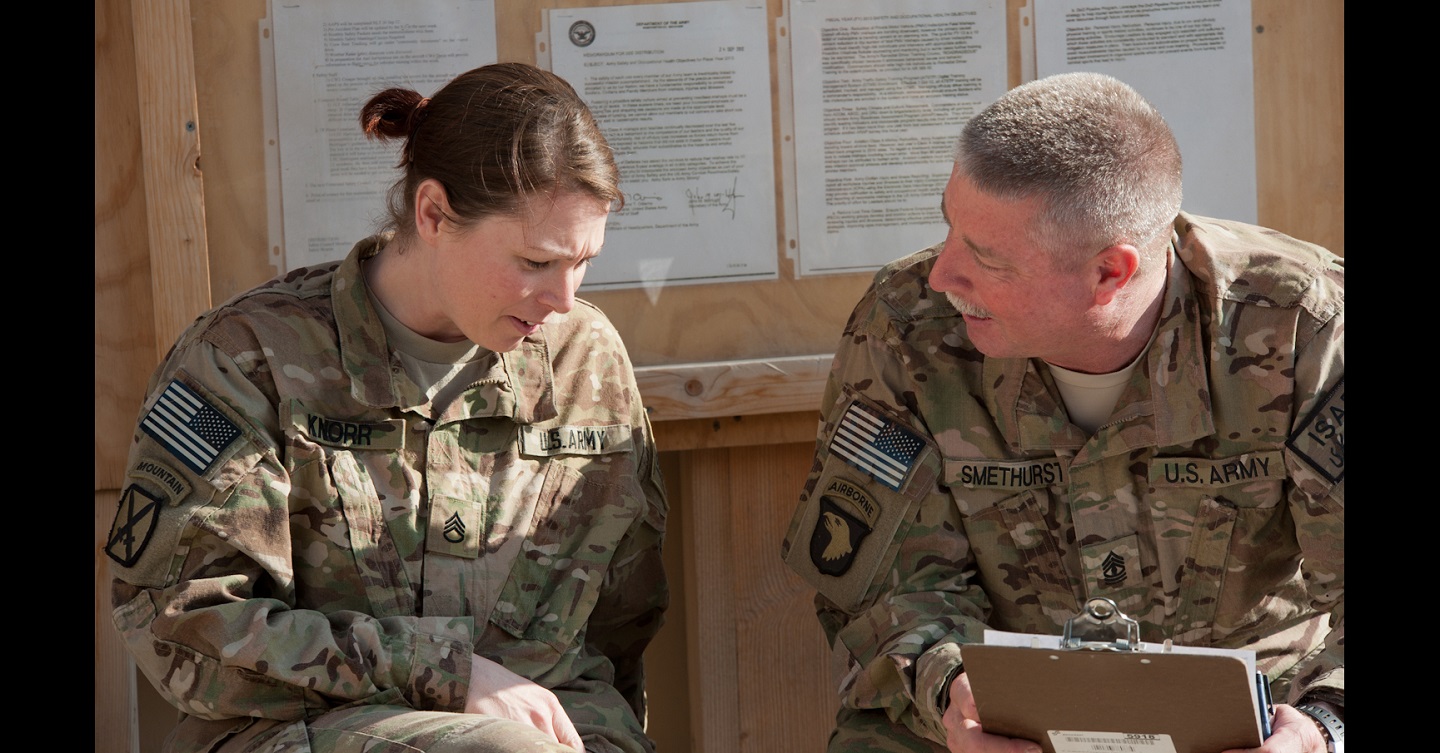
Feedback is a bit of an art form. And there are as many different types of mentorship and coaching as there are soldiers in the Army. So how do you effectively train leaders as they come up through the ranks to provide effective, honest feedback and evaluations that are in the macro sense uniform and evenly applied across the force. Michael Shaw has looked at the problem and is the first to admit that he doesn’t have all the answers, but he’s got some great suggestions about resources that are already out there. There’s no doubt the Army has mastered the bureaucratic process of evaluations but in this day and age can the service tolerate a system that isn’t optimized to find, develop and advance talent wherever it’s found – and not just in the top block.
The organizational need to accomplish the bureaucratic process of submitting a form and filling out a form is overriding the overall process of actual individual development, of taking time developing counseling making someone better at that individual level.
Podcast: Download
Michael Shaw is a 21-year Army Aviator with a doctorate in human resource management with special emphasis on leader development. This summer, he is about to start a new position as an instructor at the U.S. Naval War College. In his free time Mike works alongside Louisiana State University’s Leader Development Institute where they are exploring the domain of self-development among professionals. He is a member of the AY21 Resident Class of the U.S. Army War College.
Ron Granieri is an Associate Professor of History at the U.S. Army War College and the Editor of A BETTER PEACE.
The views expressed in this presentation are those of the speakers and do not necessarily reflect those of the U.S. Army War College, U.S. Army, or Department of Defense.
Photo Description: Staff Sgt. Shannon Knorr, Headquarters and Headquarters Company 1st Battalion, 211th Aviation Regiment, and 1st Sgt. Bryan Smethurst, first sergeant HHC 1-211 AR of the Utah National Guard, conduct an end-of-tour counseling session in Kunduz province, Afghanistan, 2012
Photo Credit: Photo by Sgt. Duncan Brennan, USA





Great talk, thanks very much. I have previously done some research with the Australian CTC looking at the Teach, Coach, Mentor concept for Observer Trainers (now we’re using the performance coaching approach). I found that while many of the techniques might be the same, a key difference for experienced personnel was in how they saw the locus of control of the three roles. Keen to discuss further.
Hey there! This article certainly reminds me of my nephew who’s been selected to be part of his college podcast team which will start releasing new episodes next week. I totally agree with your remark that we definitely have to rely on honest responses to help improve the way we deliver our podcast in the long run. I’ll make sure he keeps this tip in mind so he could give his best performance all the time.
Mick, I would agree that from the receiver standpoint locus of control is important to how they digest the feedback provided, regardless of the approach. But, before one looks to the receiver there is great misunderstanding of the type of feedback one intends to provide and thus what the impact of that feedback should produce. CTC is a great location to study feedback as that is a core tenant of the OTs. I am curious in what level of feedback do the OTs believe they are providing and to whom.